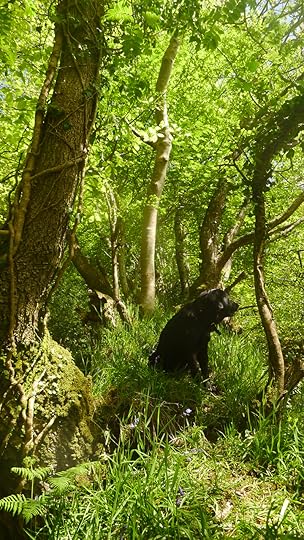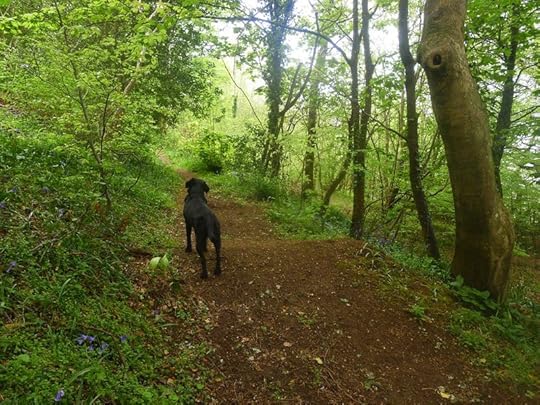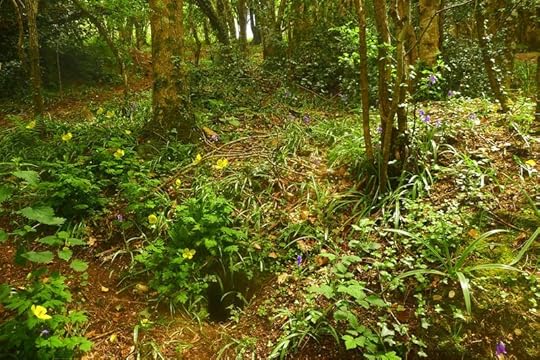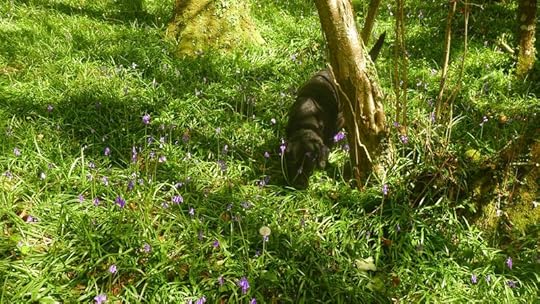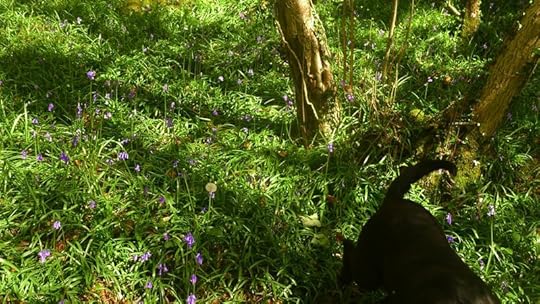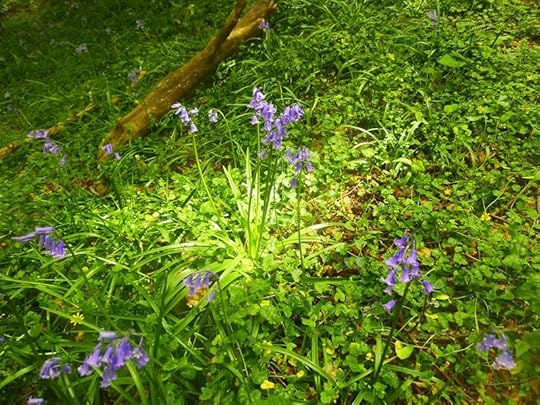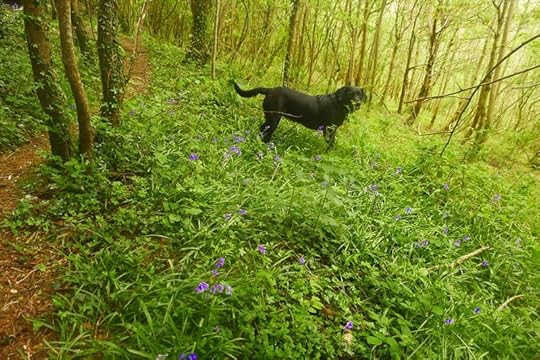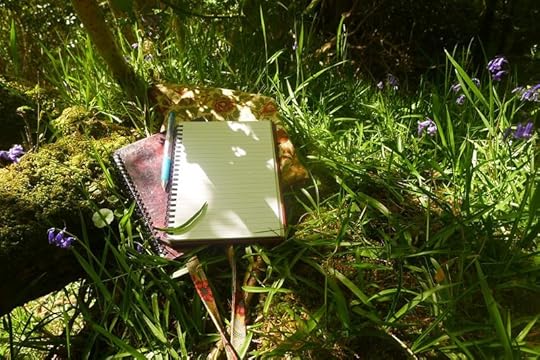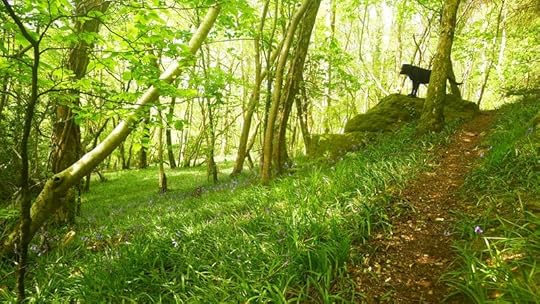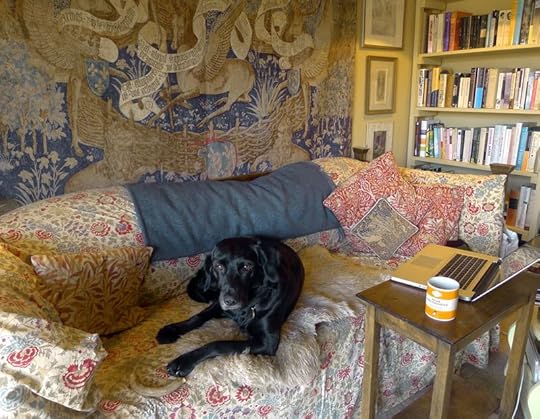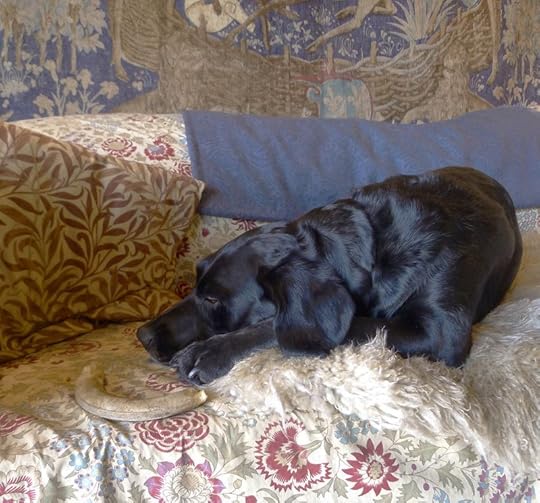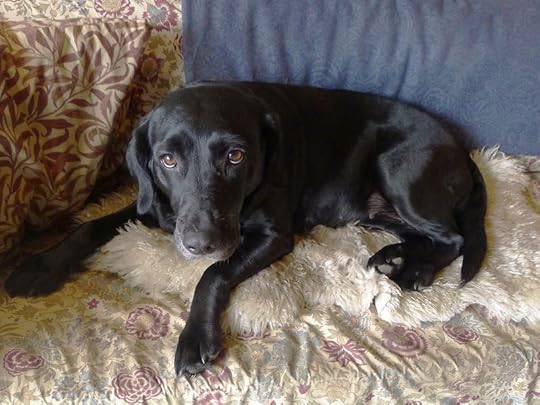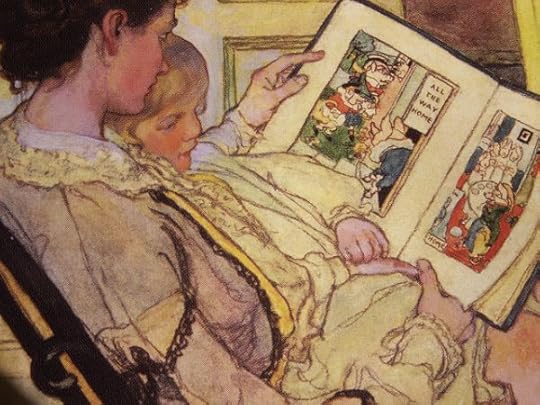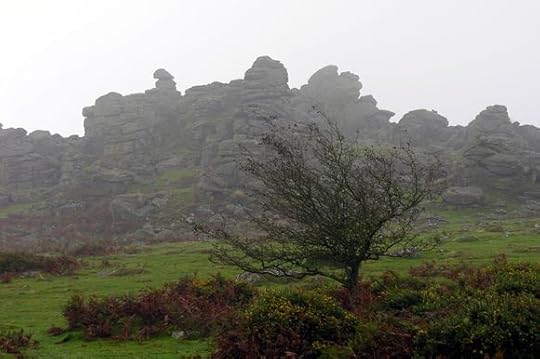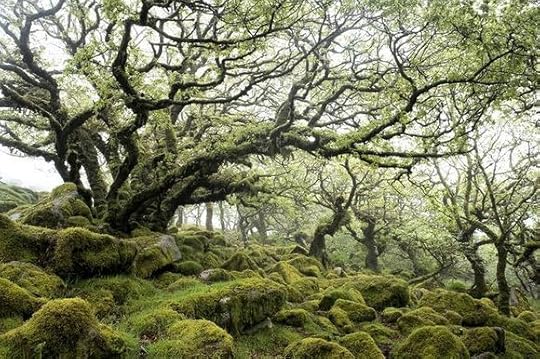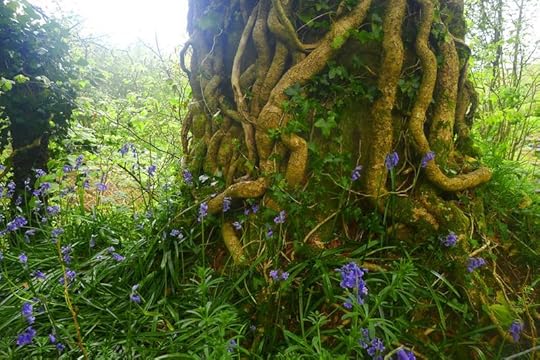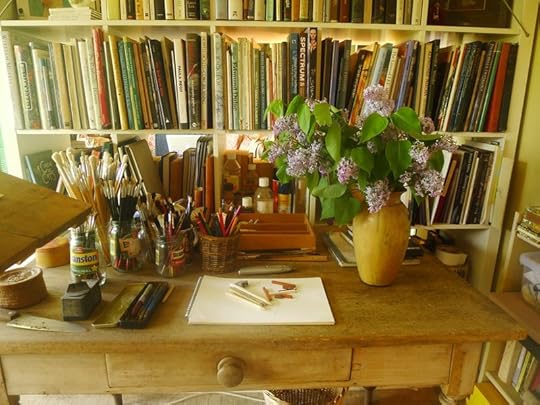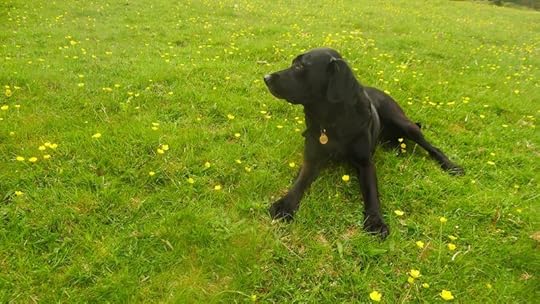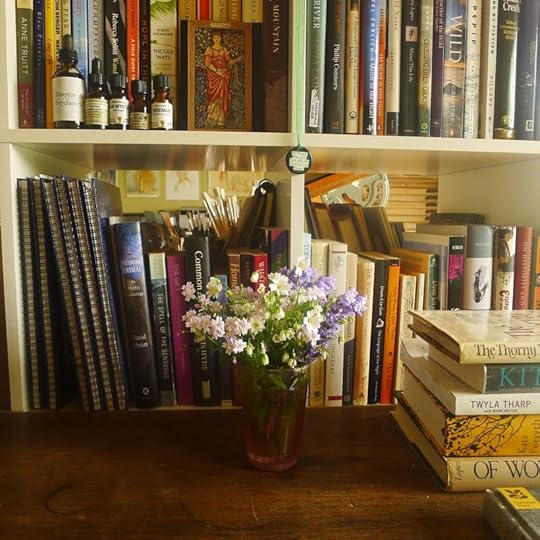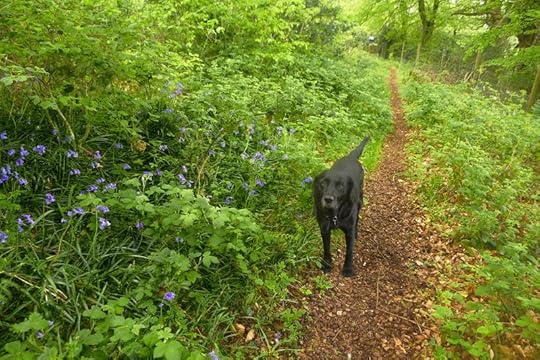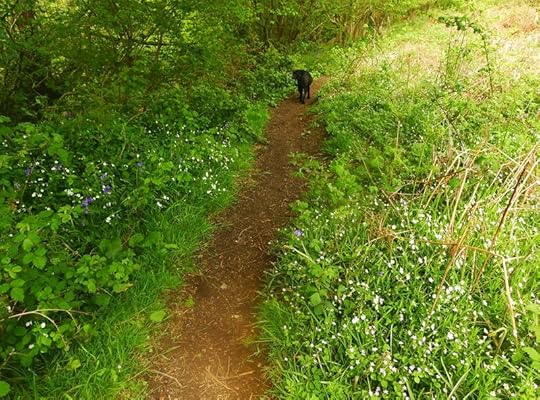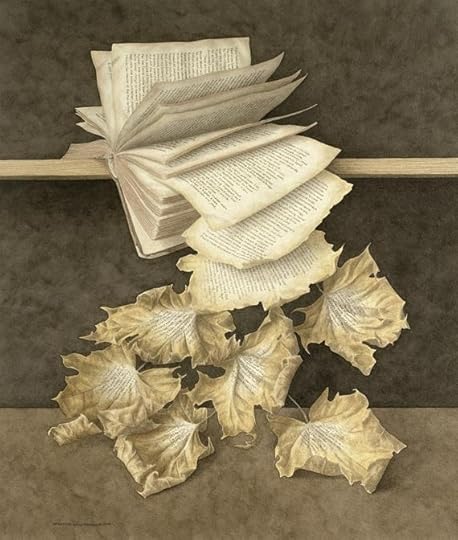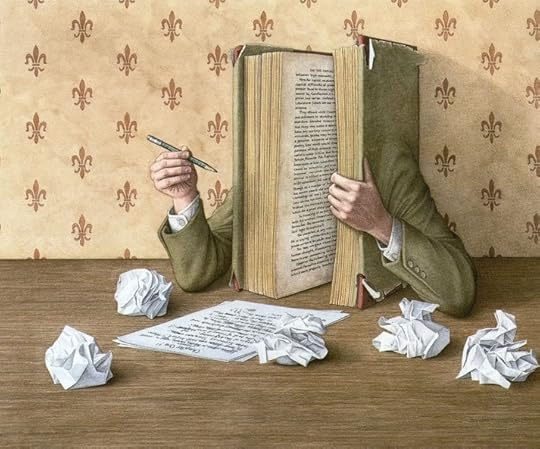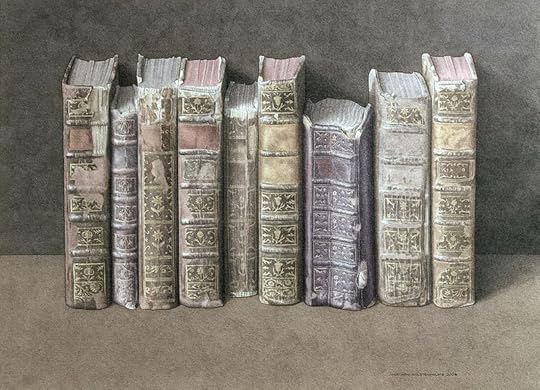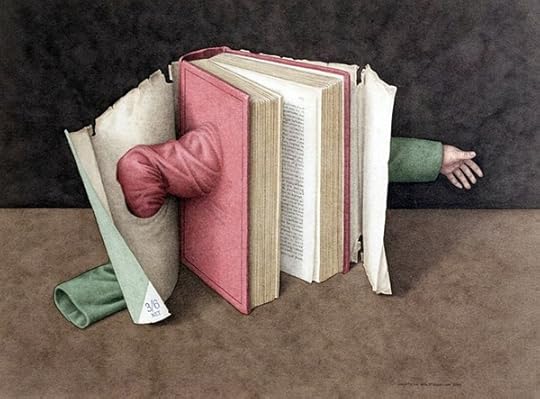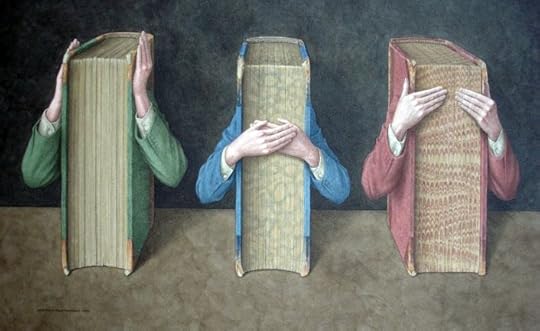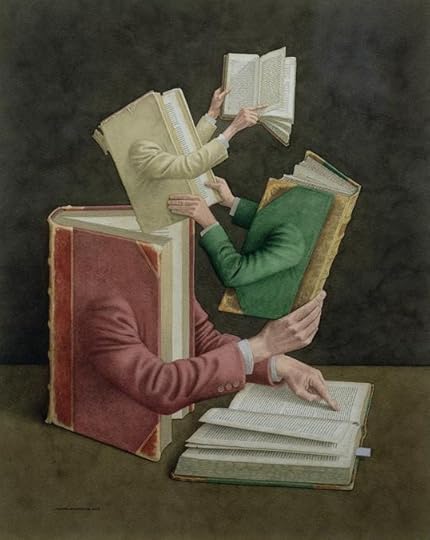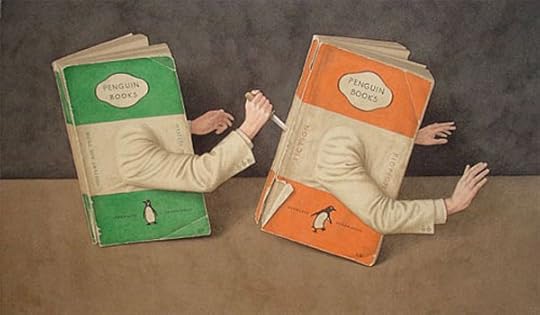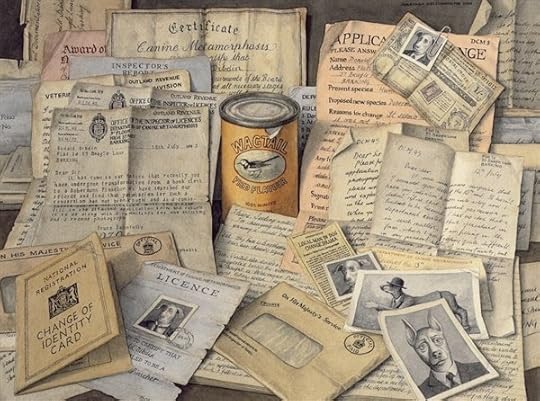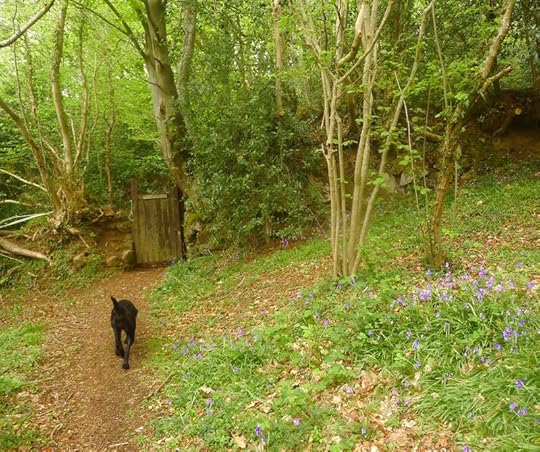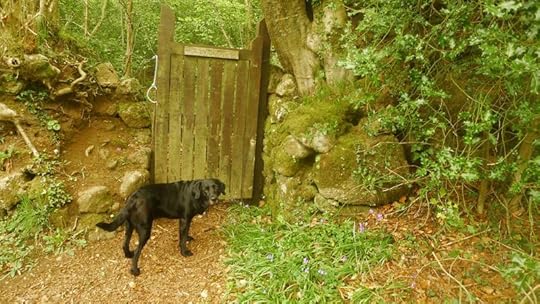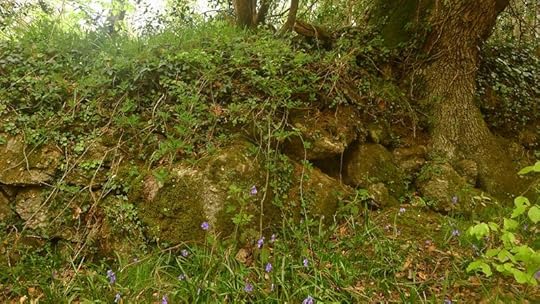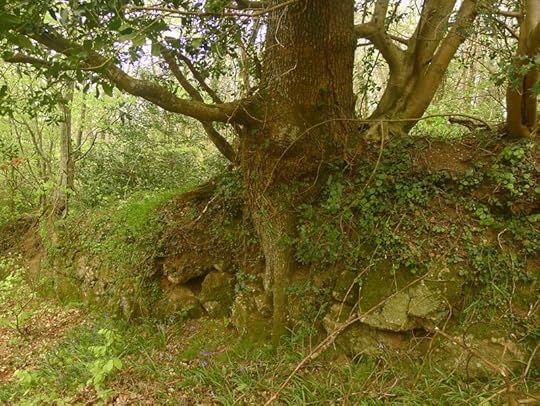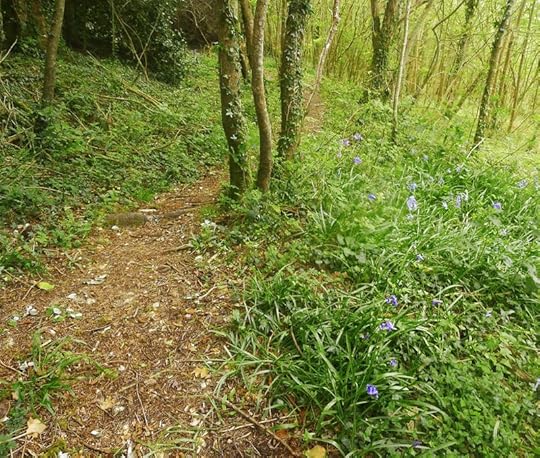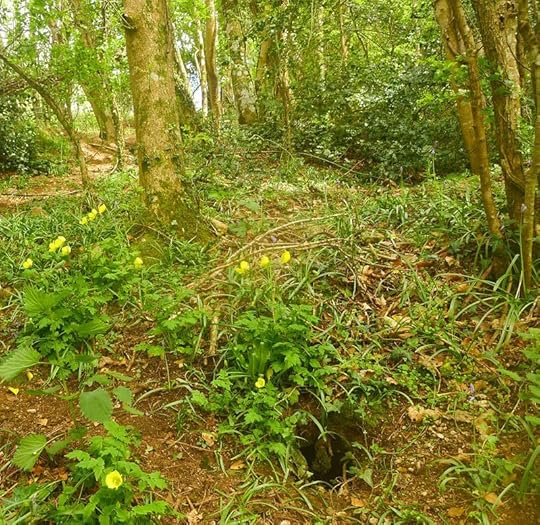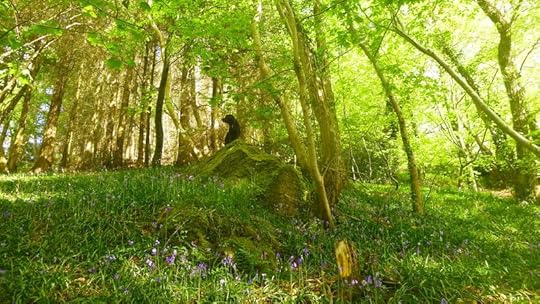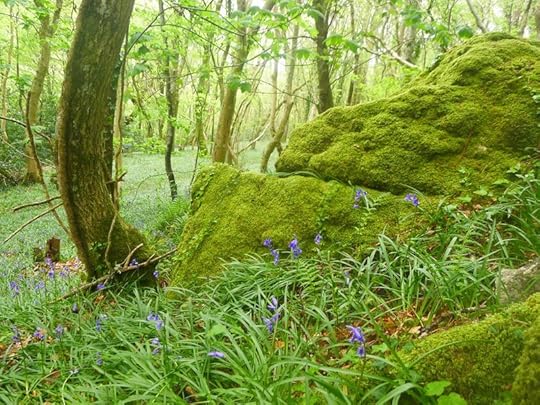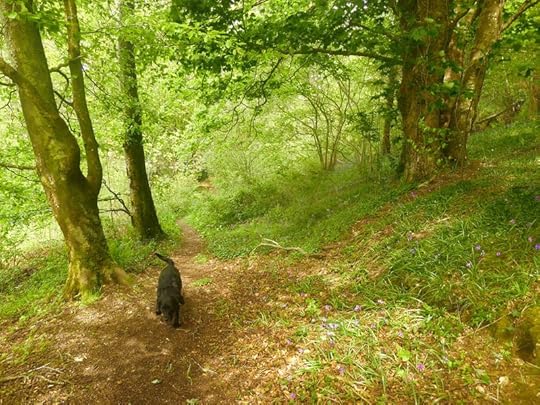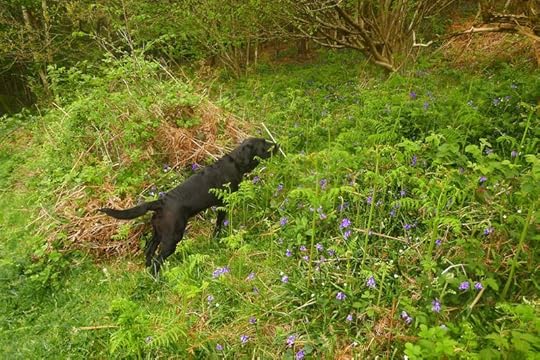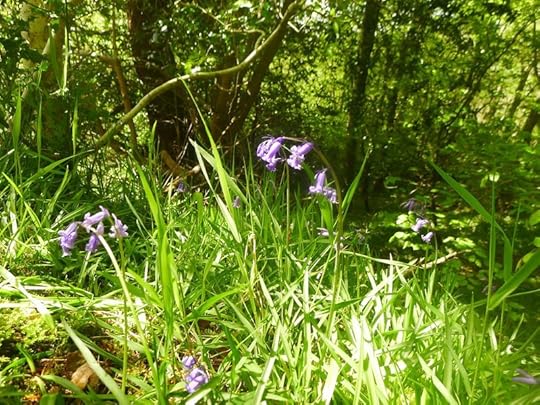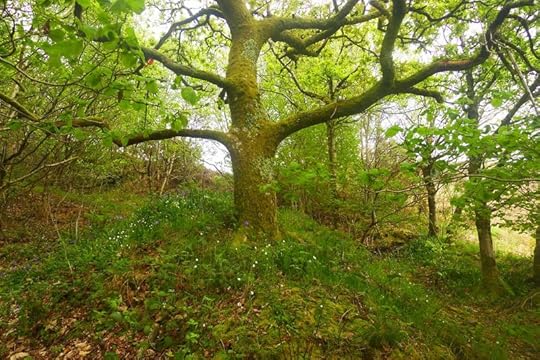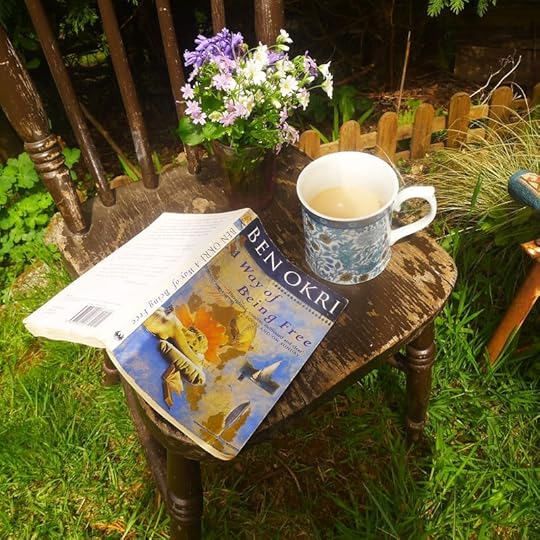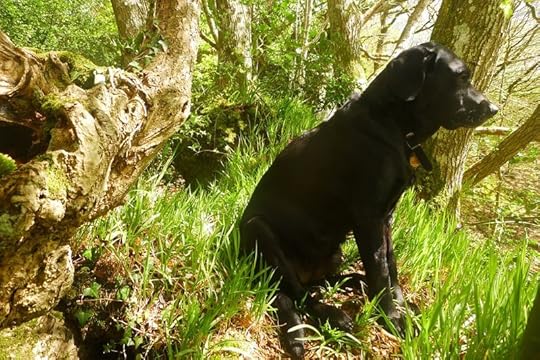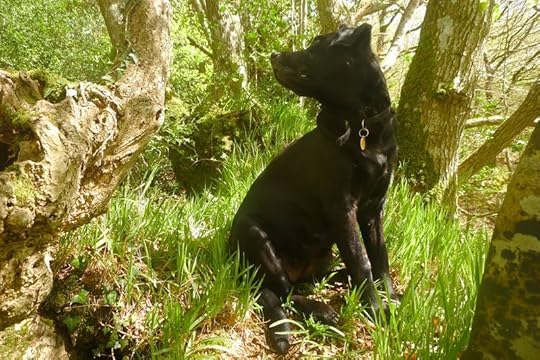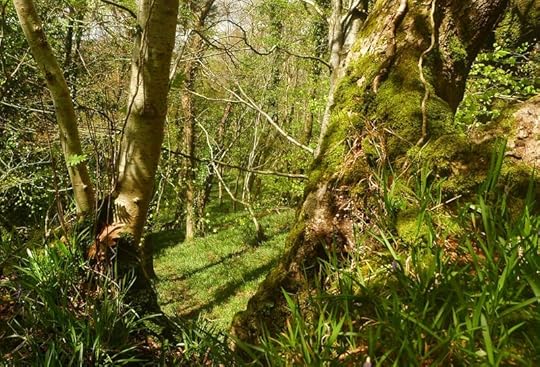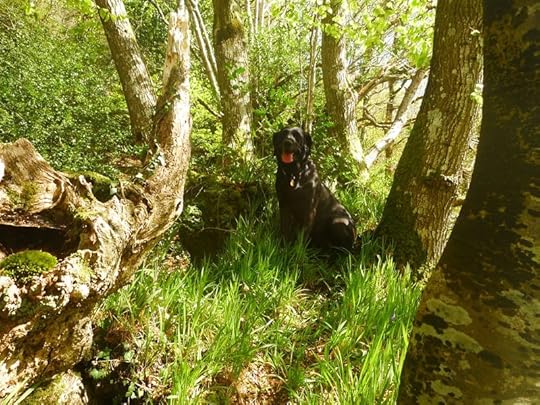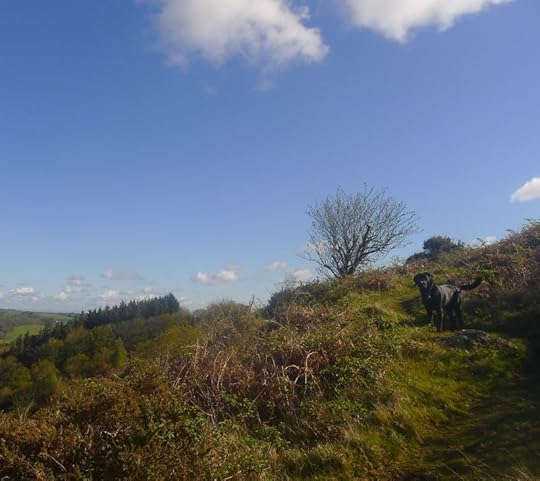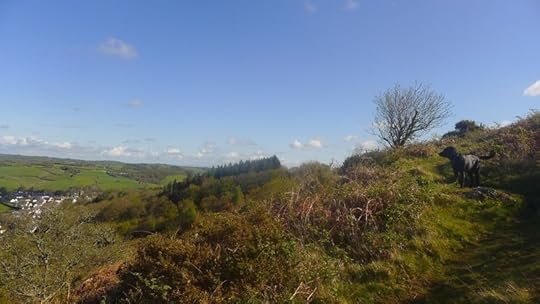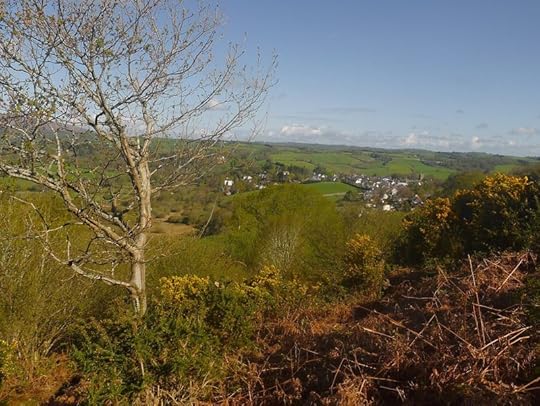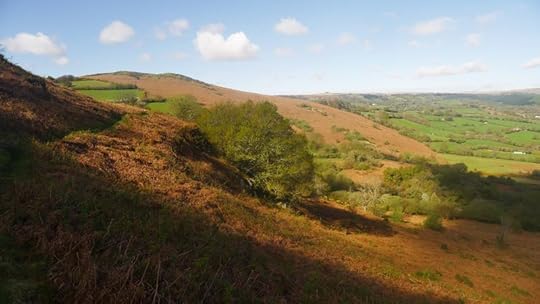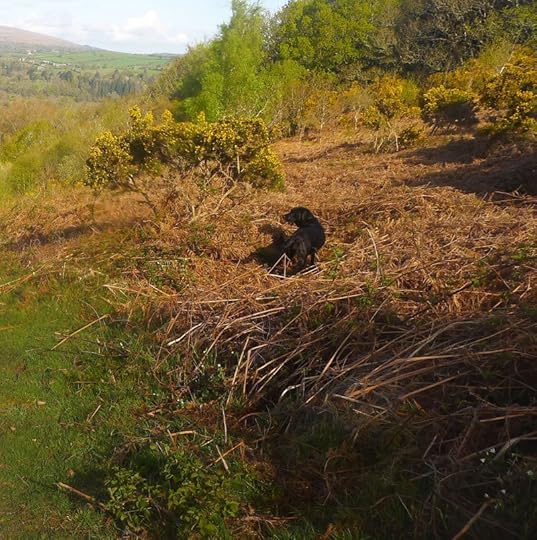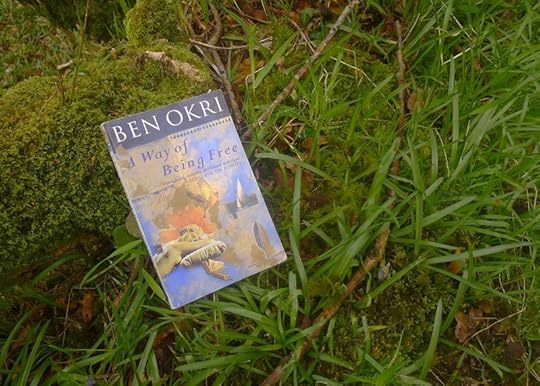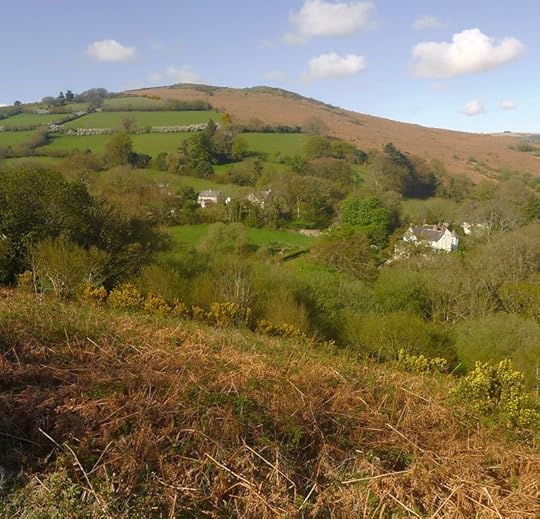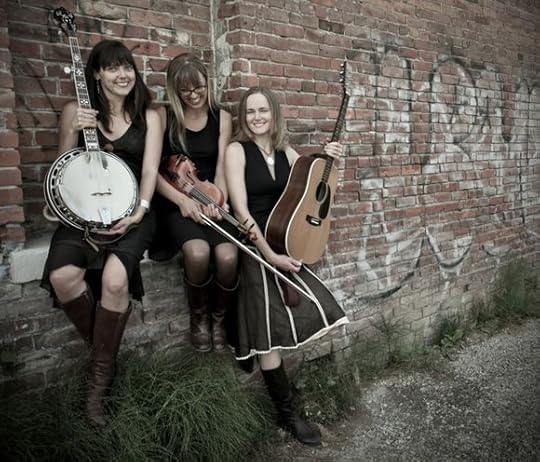Terri Windling's Blog, page 137
May 20, 2015
Still just writing
In her essay "Still Writing" (1981), the Pulitzer Prize winning novelist Anne Tyler described working in a library before she had children. After quiet days cataloging books, she would go home to work on the first of her novels. (She went on to publish twenty of them, from 1963 to the present.)
"Then," says Tyler, "our first baby came along -- an insomniac. I quit work and stayed home all day with her and walked her all night. Even if I had found the time to write, I wouldn't have had the insides. I felt drained; too much care and feeling were being drawn out of me....I enjoyed tending infants (although I've much preferred the later ages), but it was hard to be soley, continually in their company and not be able to write."
"After the children started school, I put up partitions in my mind. I would rush around in the morning braiding their hair, packing their lunches; then the second they were gone I would grow quiet and climb the stairs to my study. Sometimes a child would come home early and I would feel a little tug between the two parts of me; I'd be absent-minded and short-tempered.
"Then gradually I learned to make the transition more easily. It feels like a sort of string that I tell myself to loosen. When the children come home, I drop the string and close the study door and that's the end of it. It doesn't work perfectly, of course. There are times when it doesn't work at all: if a child is sick, for instance, I can't possibly drop the child's end of the string, and I've learned not to try. It's easier to stop writing for awhile. Or if they're home but otherwise occupied, I no longer attempt to sneak off to my study to finish that one last page; I know that instantly, as if by magic, assorted little people will be pounding on my door requiring Band-Aids, tetanus shots, and a complete summation of the facts of life.
"Last spring I bought a midget tape recorder to make notes on. I'd noticed that my best ideas came while I was running the vacuum cleaner, but I was always losing them. I thought this little recorder would help. I carried it around in my shirt pocked. But I was ignoring the partitions, is what it was; I was letting one half of my life intrude upon the other. A child would be talking about her day at school and suddenly I'd whip out the tape recorder and tell it, 'Get Morgan out of that cocktail party; he's not the type to drink.' 'Huh?' the child would say. Both halves began to seem ludicrous, unsynchronized."
After recounting the gentle grace with which her father accepts a series of upheavals, Tyler writes:
"It seems to me that the way my father lives (infinitely adapting, and looking around him with a smile to say, 'Oh! So this is where I am!') is also the way to slip gracefully through the choppy life of writing novels, plastering the dining room ceiling, and presiding at slumber parties. I have learned, bit by bit, to accept a school snow-closing as an unexpected holiday, an excuse to play seventeen rounds of Parcheesi instead of typing up a short story....What this takes, of course, is a sense of limitless time, but I'm getting that. My life is beginning to seem unusually long. And there's a danger to it: I could wind up as passive as a piece of wood on a wave. But I try to walk a middle line.
"I was standing in the schoolyard waiting for a child when another mother came up to me. 'Have you found work yet?' she asked. 'Or are you just still writing?'
"Now how am I supposed to answer that?
"I could take offense, come to think of it. Maybe the reason I didn't is that I halfway share her attitude. They're paying me for this? For just writing down untruthful stories? I'd better start looking around for more permanent employment."
"I'm surprised to find myself a writer," Tyler concludes, "but have fitted it fairly well, I think. The only real trouble that writing has ever brought me is an occasional sense of being invaded by the outside world. Why do people imagine that writers, having chosen the most private of professions, should be any good at performing in public..? I feel I am only holding myself together by being extremely firm and decisive about what I will do and what I will not do. I will write my books and raise the children. Anything else just fritters me away. I know this makes me seem narrow; but in fact, I am narrow."
"As the outside world grows less dependable, I keep buttressing my inside world, where people go on meaning well and surprising other people with little touches of grace. There are days when I sink into my novel like a pool and emerge feeling blank and bemused and used up. Then I drift over to the schoolyard, and there's this mother wondering if I'm doing anything halfway useful yet. Am I working? Have I found a job? No, I tell her.
"I'm still just writing."
As a best-selling writer married to a physician, Tyler's world is an economically privileged one, as she'd be the first to admit -- yet it's instructive to know that even she has struggled with work/life issues, for it's tempting to think that money, or commercial success, solves everything, and of course it doesn't.
Whether you have children to care for, or other family/community commitments, or a day job that pulls you away from creative work, how do you balance these things in your own life?
There is no right way or wrong way. Some artists thrive in the midst of over-full lives (the lucky creatures), while others (and I am one of them) need regular periods of quiet and solitude like plants need water, soil, and sun. Plus we change over time, as our lives change around us; thus the strategies we develop to maintain a work/life balance must change along with us. In my youth, for example, I loved the fast pace of big cities and writing or drawing at noisy cafes...a work routine that is unimaginable now, quiet Country Mouse that I've since become.
Each of us must find our own creative rhythms -- and then, when we've found them, square them somehow with everything else that life, our loved ones, and our own social conscience demands of us. It's not easy. It's never easy; and I have to report, having reached the far shores of middle age, that it doesn't get any easier with time. Yet from this conflict, this tension, our art is born; our ideas are honed; our children are raised and our communities upheld. We struggle for balance: find it, lose it, find it again, a hundred times over -- while making art of our lives, as well as creating novels, paintings, and other artworks out of our lives.
During my own times of despair when health, or family, or some sudden life problem blocks the way to my desk and drawing board too often, I often think of these words from Katherine Paterson (author of Bridge to Terabethia) reflecting on her early years as a writer:
"I had no study in those days, not even a desk or file or bookcase to call mine alone....It might have happened sooner [the writing of work worthy of publication] had I had a room of my own and fewer children, but somehow I doubt it. For as I look back on what I have written, I can see that the very persons who took away my time and space are those who have given me something to say.���
She also said this, wise woman:
"If we marvel at the artist who has written a great book, we must marvel more at those people whose lives are works of art and who don't even know it, who wouldn't believe it if they were told. However hard work good writing may be, it is easier than good living."
I want to do both. And that's why balance, or h��zh��, is my daily practice, my religion, my prayer.
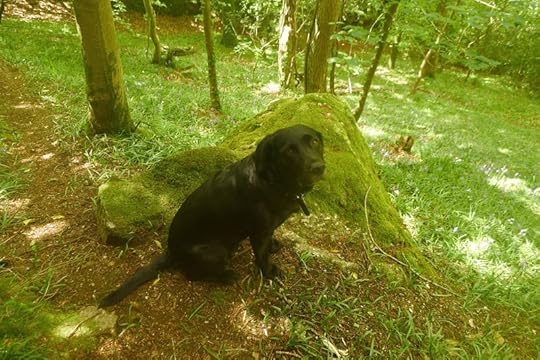 Anne Tyler's essay can be read in full in The Writer on Her Word, edited by Janet Sturnberg. The Katherine Paterson quote comes from her essay collection Gates of Excellence: On Reading and Writing Books for Children.
Anne Tyler's essay can be read in full in The Writer on Her Word, edited by Janet Sturnberg. The Katherine Paterson quote comes from her essay collection Gates of Excellence: On Reading and Writing Books for Children.
May 18, 2015
Rainy day in the studio
From "On Art and Life" by Dani Shapiro:
"I���m going to suggest something radical here -- something that is much easier said than done. We must not separate our life from our art. Louise Gluck recently spoke of this in an interview with William Giraldi in Poets & Writers: 'You have to live your life if you���re going to do original work. Your work will come out of an authentic life, and if you suppress all of your most passionate impulses in the service of an art that has not yet declared itself, you���re making a terrible mistake.'
"I���m often asked about motherhood and writing," Shapiro continues. "About teaching and writing. About making a living and writing. Beneath all of the questions is a deeper question, thrumming: Can I have a life and be a writer?
"I���d like to answer a resounding yes to that question, though with the caveat that this requires a daily practice, a daily awareness that perhaps we need not delineate between life and art, draw a line down the center of our days and put our work on one side and everything else on the other. Sarah Ruhl offers this: 'I found that life intruding on writing was, in fact, life. And that, tempting as it may be for a writer who is also a parent, one must not think of life as an intrusion. At the end of the day, writing has very little to do with writing, and much to do with life. And life, by definition, is not an intrusion.' "
You can read the full piece on Shapiro's writing blog (where it's the entry dated January 21st). I also recommend her insightful book Still Writing: The Perils and Pleasure of the Creative Life -- as well as her other books, both fiction and nonfiction.
Recommended Reading
A round-up of recent online finds:
* Simon at the Corymbus blog on music and wilderness (Corymbus).
* Sarah Elwell on elemental writing (Knitting the Sky).
* Warren Ellis on writing from a littoral space (Medium).
* Martin Shaw on hares and madrigals (Westcountry School of Myth & Story).
* Shazea Quraishi on bears and coming of age (The Guardian).
* Matthew Nowlan on wild children in recent fiction (Electric Literature) -- plus a previous post on wild children in folklore here on Myth & Moor, in case you missed it.
* Rhian Sasseen on the dearth of women hermits (Aeon) -- which brings to mind Sara Maitland's A Book of Silence.
* Laura Miller on "The Bloody Chamber," Angela Carter's classic volume of de-constructed fairy tales (Salon).
* Peter Bradshaw on "Tale of Tales," a new film based on the fairy tales of Giambattista Basile (The Guardian).
And one video:
* A short film about Yinka Shonibare's art project "The William Morris Family Album," on show at the William Morris Gallery, Walthamstow, London, until June 7.
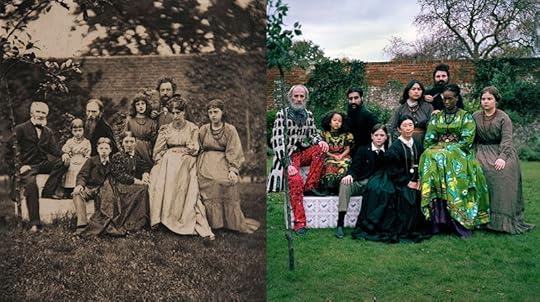 Art above: "Five Little Pigs" by Elizabeth Shippen Green (1871-1954) and William Morris' Family Album re-imagined by Yinka Shonibare.
Art above: "Five Little Pigs" by Elizabeth Shippen Green (1871-1954) and William Morris' Family Album re-imagined by Yinka Shonibare.
May 17, 2015
Tunes for a Monday Morning
All of today's songs are from musicians based here in Devon...
Above, Seth Lakeman, who lives on the other side of Dartmoor near Tavistock, joins up with singer Lucie Jones to perform "The Ballad of Midsomer County," a song he wrote for the Midsomer Murders television programme. (They talk about their involvement with the show here.)
Below, "The Courier" from Seth's most recent album, Word of Mouth -- featuring songs about the "hidden histories and everyday heroes" of Devon and Cornwall. (More of his music here.)
Above: "Grace" by Wildwood Kin (Emillie Key, Beth Key, and Meghann Loney), an alt-folk trio from Exeter. The video was recorded in a woodland in south Devon for the Sidmouth Folk Festival Fringe.
Above: "The Fear" by Ben Howard, who comes from Totnes, just across the moor. The song is from his second album, I Forget Where We Were.
Below, "Old Pine," a favorite song of mine from Ben's first album, Every Kingdom, about summers on the Devon/Cornwall coast. (More of his music here.)
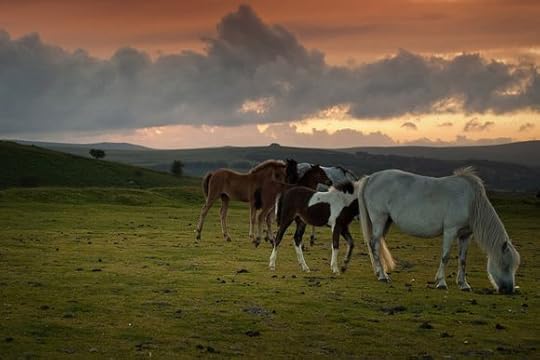 Devon photographs above: Hound Tor, Wistman's Wood, and Dartmoor ponies. (Photo credits in picture captions.)
Devon photographs above: Hound Tor, Wistman's Wood, and Dartmoor ponies. (Photo credits in picture captions.)
May 16, 2015
On a May morning in Devon
Bluebells among the oak roots.
Lilacs among the chalks and paints.
Buttercups in a farmer's field.
Wildflowers in old pink glass.
"People from a planet without flowers would think we must be mad with joy the whole time to have such things about us.��� - Iris Murdoch
May 14, 2015
The creative act of reading
Ben Okri Week concludes with these thoughts about the relationship between writers and readers:
"This cannot be said often enough: it is readers who make the book," Okri states. "Writers have monumental responsibilities in the execution of their art, but readers also have great responsibilities. They have to make something valuable from their reading. Books are a dialogue between souls. All the untapped energy in great novels should not lie coiled in the pages in vain. The reader should bring the best in themselves to meet the best in the writer's work. There could be a greater potential for good in our lives the more one spirit of freedom dances with another. The energies or the serenity within books is meant, finally, to multiply the energies within the reader, or to deepen their serenity. The true destination of books is life, and the living.
"The first joy, therefore, is the joy of service. Stories enrich the world. Stories can change lives. They have changed mine. All writers, at some point, have to make this choice, ask this question: what is the purpose of my art? Most, I suspect, if they are inclined to respond at all, might say something like this: 'I have chosen to serve my fellow human beings, to soothe, if I can; to create beauty, if I am lucky; to hint at certain fundamental truths, if I am fortunate; and one way or another to give the best of myself to the world, to people I may never meet, and to do so with the incomplete feeling that it is possible only on the page, in stories, that we can be so tender to one another, so true, so free, so humane, so brave, and so pure.'
"It should be clear by now that it is you, great readers of the world, who are the root of the storyteller's complex joy."
The art in this post is by British painter and illustrator Jonathan Wolstenholme, creator of wonderfully witty watercolors depicting the secret lives of vintage books and papers. Born in 1950, Wolstenholme studied at the Croyden School of Art and is based in London. You'll find the title of each painting in the picture captions. (Run your cursor over the images to see them.)
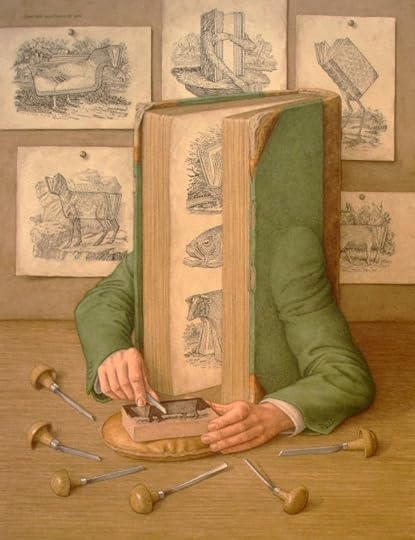 The passage above comes from Ben Okri's essay "The Joys of Storytelling 1," published in A Way of Being Free.
The passage above comes from Ben Okri's essay "The Joys of Storytelling 1," published in A Way of Being Free.
The magic of the writer's craft
For Day 3 of Ben Okri Week, some thoughts on the writing process from his essay "Newton's Child," with a walk through the Devon woods among bluebells, poppies, and other wildflowers. Tilly, once again, is the Animal Guide who leads us to Faerieland....
"Some writing is forceful, ambitious, and immediate," says Okri, "it is all there, it is sensual. Another kind of writing appears simple, does not add up to much on the page, and performs no somersaults. We think one kind of writing is better, but we are sometimes wrong, and sometimes right. When they work, both kinds of writing are gifts, and both can be magical."
"The best kind of books...have a delightful mystery about them. They inexplicably create powerful feelings, images, moods, worlds, and parallel narratives the farther away in time you are from the reading. They grow in time. They keep re-creating themselves in your consciousness, they keep growing, they keep becoming other books, till they become part of your experience, like something lived, or dreamed, or loved, or suffered.
"Further encounters with such books make them more. There is no final point of understanding with books that live."
"Their effects cannot be aspired to. And writers can never be altogether sure that they have indeed created this rare and living thing. For their mysterious effect can only be felt silently, in the secret chambers of consciousness, in the depths of sleep and forgetfulness, in states of being where the magic of the words can work unseen."
"The highest kind of writing -- which must not be confused with the most ambitious kind -- belongs to the realm of grace. Talent is part of it, certainly; a thorough understanding of the secret laws, absolutely. But finding the subject and theme which is in perfect harmony with your deepest nature, your forgotten selves, your hidden dreams, and the full unreasonated essence of your life -- now that cannot be reached through searching, nor can it be stumbled upon through ambition. That sort of serendipity comes upon you on a lucky day. It may emerge even out of misfortune or defeat. You may happen upon it without realizing that this is the work through which your whole life will sing. We should always be ready. We should always be humble. Creativity should always be a form of prayer."
"You cannot write well when you have no feelings and no thoughts on the subject. Perhaps when we have to write to order the ill-used creative self, bored with the business of irrelevant and joyless tasks, will simply refuse to come alive when you really need it. You could call the business of developing faulty internal relations."
"There is no need to panic. The intelligence that shaped the universe shaped you. There is an inner part of us, forever obscured, forever mysterious, which is most alive during the process of composition. And that inner part, that inner glow, is timeless, and it functions beyond time. It drinks from deep waters. It has the stillness and the dance and the radiance of the firmament. When one is most absorbed in the act of creation one almost feels that one is wandering in the great corridors of all minds. Creativity makes us part of it all. "
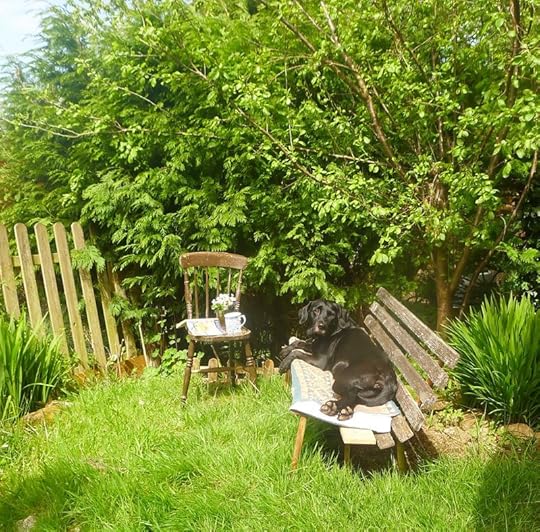 Photographs above: A walk through the woods early yesterday morning; a still life of wildflowers, coffee, and book; and Tilly on the bench beneath the plum tree in the studio garden...posted on a day when rain drums on the studio's tin roof and keeps us quietly indoors. The poem in the picture captions come from Lisel Mueller's gorgeous collection of poetry The Private Life. Ben Okri's "Newton's Child" can be found in his essay collection A Way of Being Free, pictured above.
Photographs above: A walk through the woods early yesterday morning; a still life of wildflowers, coffee, and book; and Tilly on the bench beneath the plum tree in the studio garden...posted on a day when rain drums on the studio's tin roof and keeps us quietly indoors. The poem in the picture captions come from Lisel Mueller's gorgeous collection of poetry The Private Life. Ben Okri's "Newton's Child" can be found in his essay collection A Way of Being Free, pictured above.
May 12, 2015
The mystery of storytelling
Carrying on with our Ben Okri Week:
"The mystery of storytelling," he writes, "is the miracle of a single living seed which can populate whole acres of human minds. It is the multiplicity of responses which a single text can generate within the mind's unfailing capacity for wonder. Storytellers are a tiny representative of the greater creative forces. And like all artists they should create beauty as best they can, should serve truth, and remember humility, and when their work is done and finely crafted, arrowed to the deepest points in the reader's heart and mine, they should be silent, leave the stage, and let the imagination of the world give sanctuary."
"There are two essential joys in storytelling," Okri continues. "The joy of telling, which is to say of the artistic discovery. And the joy of listening, which is to say of the imaginative identification. Both joys are magical and important. The first involves exploration and suffering and love. The second involves silence and openness and thought. The first is the joy of giving. The second is the joy of receiving. My prayer is to be able to write stories that, to paraphrase T.S. Elliot, can be read so deeply that they are not read at all, but you become the story, while the story lasts. With the greatest writers, you continue to become more of the story long after you have finished it."
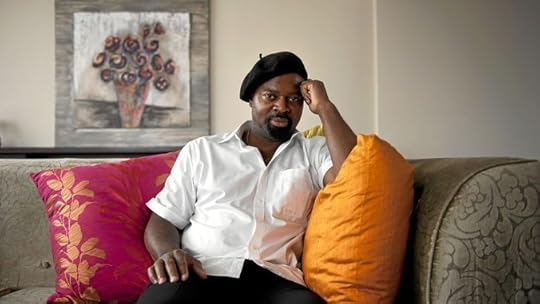 The passages quoted in this post and in the picture captions are from Ben Okri's "The Joys of Storytelling 1" and "The Joys of Storytelling 3." Both essays can be found in Okri's fine essay collection A Way of Being Free.
The passages quoted in this post and in the picture captions are from Ben Okri's "The Joys of Storytelling 1" and "The Joys of Storytelling 3." Both essays can be found in Okri's fine essay collection A Way of Being Free.
The storyteller's art
From "The Joys of Storytelling 1" by Ben Okri (A Way of Being Free):
"The earliest storytellers were magi, seers, bards, griots, shamans. They were, it would seem, as old as time, and as terrifying to gaze upon as the mysteries with which they wrestled. They wrestled with mysteries and transformed them into myths which coded the world and helped the community to live through one more darkness, with eyes wide open and hearts set alight.
"I can see them now, the old masters. I can see them standing on the other side of the flames, speaking in the voices of lions, or thunder, or monsters, or heroes, heroines, or the earth, or fire itself -- for they had to contain all voices within them, had to be all things and nothing. They had to have the ability to become lightning, to become a future homeland, to be the dreaded guide to the fabled land where the community will settle and fructify. They had to be able to fight in advance all the demons they would encounter, and summon up all the courage needed on the way, to prophesy about all the requisite qualities that would ensure their arrival at the dreamt-of land.
"The old masters had to be able to tell stories that would make sleep possible on those inhuman nights, stories that would counter terror with enchantment, or with a greater terror. I can see them, beyond the flames, telling of a hero's battle with a fabulous beast -- the beast that is in the hero."
"The storyteller's art changed through the ages. From battling dread in word and incantations before their people did in reality, they became the repositories of the people's wisdom and follies. Often, conscripted by kings, they became the memory of a people's origins, and carried with them the long line of ancestries and lineages. Most important of all, they were the living libraries, the keepers of legends and lore. They knew the causes and mutations of things, the herbs, trees, plants, cures for diseases, causes for wars, causes of victory, the ways in which victory often precipitates defeat, or defeat victory, the lineages of gods, the rites humans have to perform to the gods. They knew of follies and restitutions, were advocates of new and old ways of being, were custodians of culture, recorders of change."
"These old storytellers were the true magicians. They were humanity's truest friends and most reliable guides. Their role was both simple and demanding. They had to go down deep into the seeds of time, into the dreams of their people, into the unconscious, into the uncharted fears, and bring shapes and moods back up into the light. They had to battle with monsters before they told us about them. They had to see clearly."
"They risked their sanity and their consciousness in the service of dreaming better futures. They risked madness, or being unmoored in the wild realms of the interspaces, or being devoured by the unexpected demons of the communal imagination."
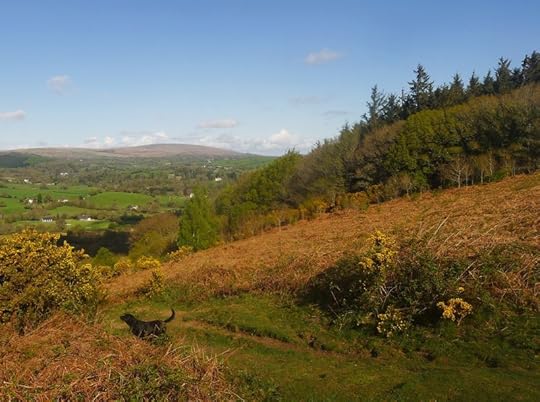
"And I think that now, in our age, in the mid-ocean of our days, with certainties collapsing around us, and with no beliefs by which to steer our way through the dark descending nights ahead -- I think that now we need those fictional old bards and fearless storytellers, those seers. We need their magic, their courage, their love, and their fire more than ever before. It is precisely in a fractured, broken age that we need mystery and a reawoken sense of wonder. We need them to be whole again."
We do indeed.
The photographs above are from the quiet Sunday morning when I sprained my ankle at the top of Nattadon Hill, in the beautiful hour before that fateful step. No matter how much we plan our lives, we never truly know just what's ahead...and that's good to remember, because creative work is like that too. We plan, we plan, we plan, but we never really know what the end result will be.
As Neil Gaiman 0nce wrote (in The Sandman, Volume 6: Fables and Reflections): ''It is sometimes a mistake to climb; it is always a mistake never even to make the attempt. If you do not climb, you will not fall. This is true. But is it that bad to fail, that hard to fall?''
It feels hard, of course. To fail or to fall. But we heal, and life goes on.
May 10, 2015
Tunes for a Monday Morning
Tilly and I are back in the studio at last, starting the week with sweet women's harmonies to soothe the soul and fire the spirit. All four tunes comes from The Sweet Lowdown, a roots trio from British Columbia: Amanda Blied on guitar, Shanti Bremer on banjo, and Miriam Sonstenes on fiddle. These songs go out to everyone in the UK feeling bruised by last week's election, with love.
Above, a recent song, "You Can Find the North," from the band's fourth album, Chasing the Sun.
Below, an earlier song, "Red Shift Blues," from their self-titled second album.
Above: "The Seen," an instrumental piece from The Sweet Lowdown's third album, May.
Below: "Going Up on the Mountain," an old spiritual performed in St. John's Cathedral, Lafayette, Louisiana.
Terri Windling's Blog
- Terri Windling's profile
- 708 followers


